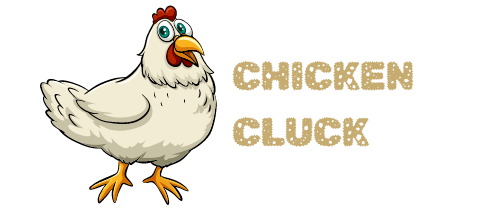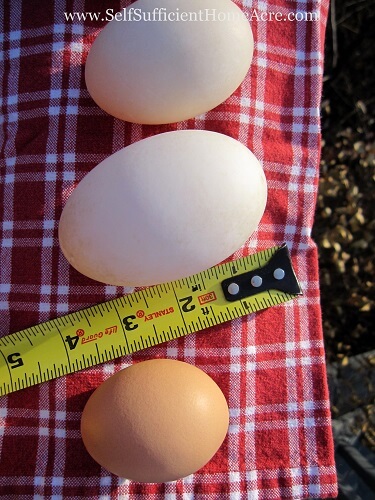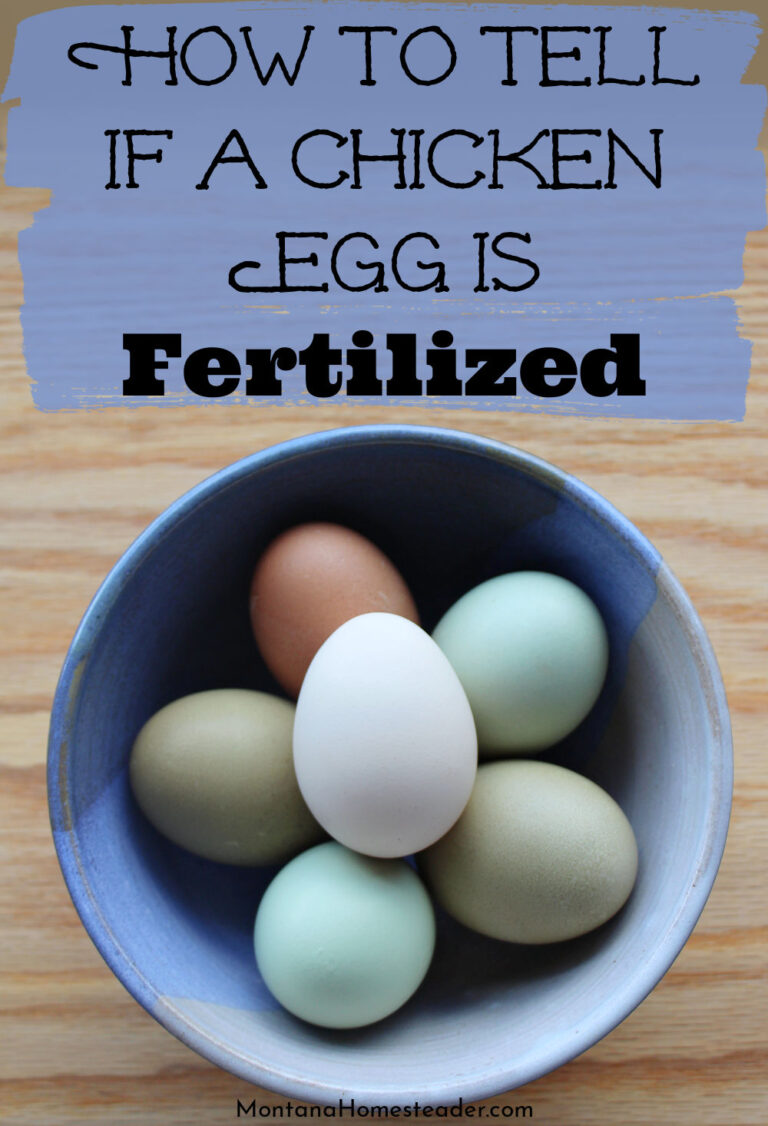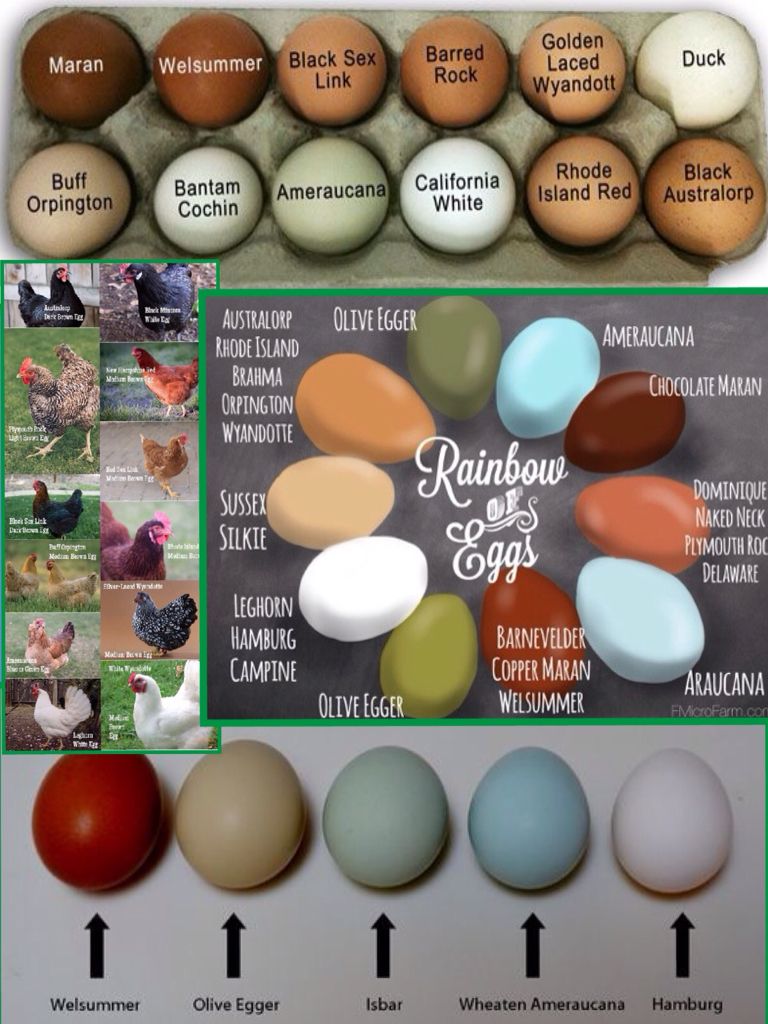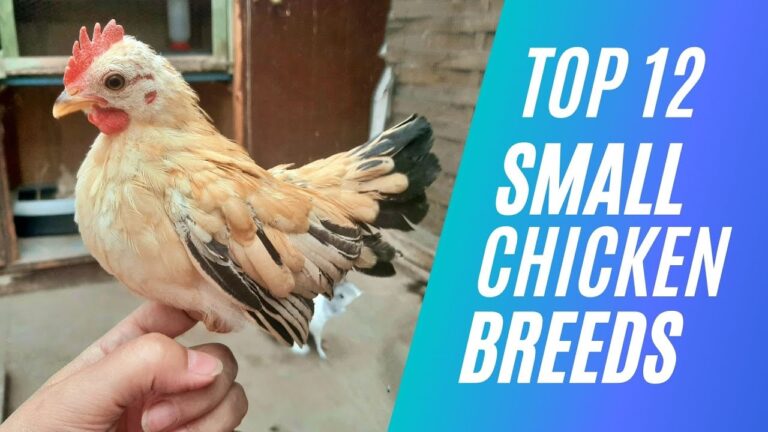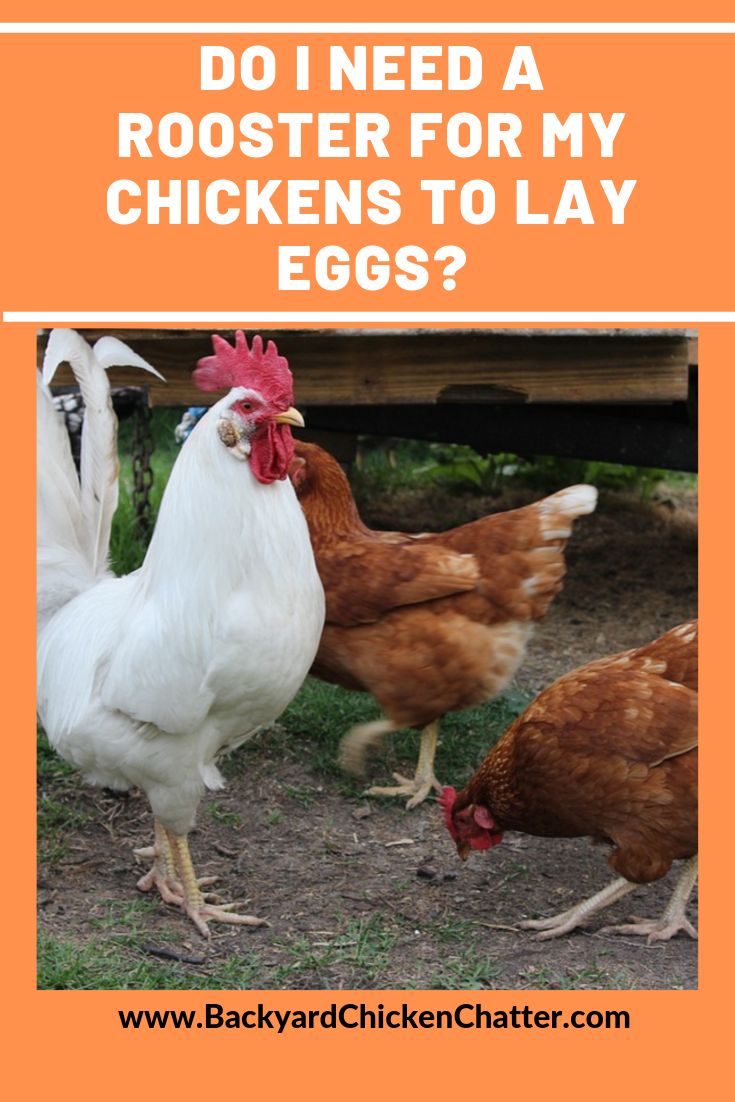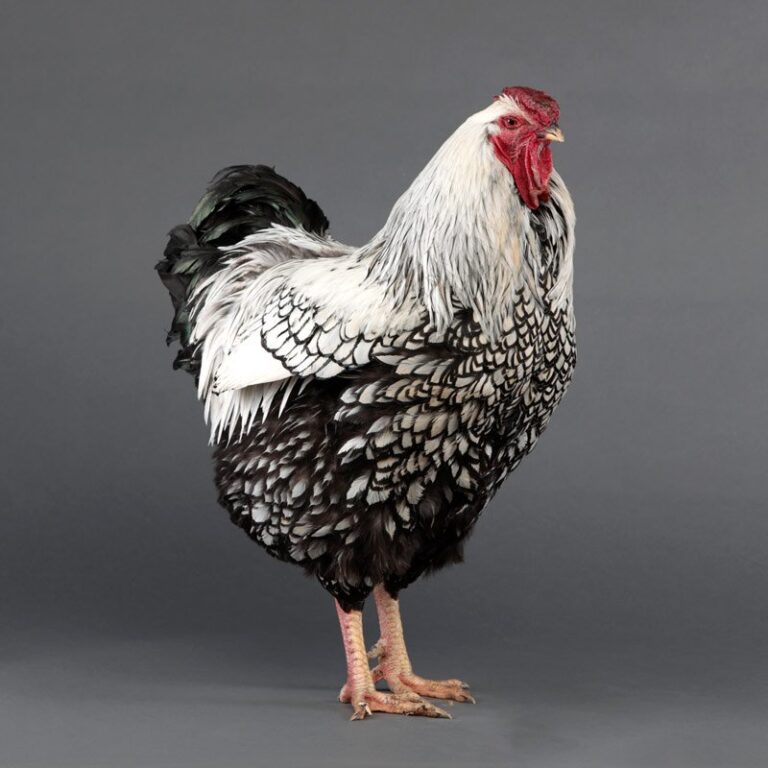Yes, Cornish hens do lay eggs. They can produce a small to moderate number of eggs annually.
Cornish hens, a breed derived from Cornish chickens, are typically known for their meat rather than their egg-laying capability. However, despite being less prolific than other breeds, Cornish hens will lay, particularly in their first year. Owners of these birds can expect around 160 to 180 eggs per year.
These hens reach the point of lay at about 24 to 28 weeks of age. The eggs they produce are smaller than the average chicken egg but are perfectly suitable for consumption. Keeping Cornish hens for their eggs might not be as efficient as other layers, but they certainly contribute to a diverse backyard flock. Understanding their modest egg-laying capacity is important for those interested in raising these birds for purposes beyond their traditional role as a meat source.

Credit: aproductivehousehold.com
An Introduction To Cornish Hens
Exploring the charming world of Cornish hens opens up a treasure trove of poultry knowledge. These birds are not only adorable but also rich in history and distinct characteristics. Before delving into the question of their egg-laying capabilities, let’s uncover their origins and understand what makes them unique.
The Origin Of Cornish Hens
Cornish hens, also known as Cornish game hens, trace their roots back to the county of Cornwall in England. This breed resulted from a cross between Plymouth Rock hens and Red Cornish chickens. Farmers sought birds with rapid growth and excellent meat quality, making Cornish hens desirable.
Physical Characteristics
The Cornish hen boasts a compact body with broad breasts and muscular legs. Their feathers gleam in a mix of colors with white, buff, and reddish-brown being the most common. These features not only contribute to their attractiveness but also signal the breed’s carefully selected traits for optimal meat production.
Each hen wears a pea comb atop its head, which is both a distinctive aesthetic feature and a functional trait that helps them cope with various climates. Despite their smaller size, Cornish hens are sturdy and resilient, adapting well to different environments.
Understanding Cornish Hens’ Reproduction
Understanding Cornish Hens’ Reproduction starts with a look at these small poultry birds. Cornish hens are a type of chicken known for their meat. People often wonder if these birds lay eggs just like other chickens. Let’s explore their breeding habits and reproductive cycle to get clear answers.
Breeding Habits
Cornish hens do lay eggs and can be bred to produce more hens. These birds reach sexual maturity around 5 months old. Farmers often pair a hen with a rooster to encourage egg laying. Proper care ensures healthy hens for breeding. This includes:
- Good nutrition
- Clean water
- Comfortable nesting areas
Reproductive Cycle
The reproductive cycle of Cornish hens mirrors that of other chickens. Hens lay eggs whether or not a rooster is present. Fertilization is key for offspring, thus a rooster’s role is crucial. See the cycle stages below:
- Egg laying: Begins when hens are about 5 months old.
- Incubation: Takes 21 days post-fertilization for the eggs to hatch.
Hens lay an egg nearly every day. However, for chicks to hatch, eggs must be fertilized and then properly incubated. Farmers often use incubators to maintain temperature and humidity.
Notice how this content is laid out with SEO best practices, like bolding key phrases and presenting clear, short sentences with bulleted lists to improve readability.Egg-laying Capabilities Of Poultry
In the world of poultry, not all birds are equal in their egg-laying abilities. Some are prolific layers while others are more reserved. A popular query among poultry enthusiasts is whether the petite Cornish hen can contribute to the egg basket. Similar to other poultry, Cornish hens possess the innate ability to lay eggs, although their output differs from species to species. Understanding the nuances can help backyard farmers and hobbyists alike.
Factors Influencing Egg Production
Here’s what affects a hen’s ability to lay:
- Genetics: Hereditary traits play a crucial role.
- Age: Hens lay the most eggs in their first few years.
- Diet and Nutrition: Well-fed hens tend to be better layers.
- Light Exposure: Longer daylight triggers more laying.
- Health and Stress Levels: Healthy, unstressed birds lay consistently.
Comparative Egg Laying Among Poultry Breeds
| Breed Type | Average Eggs Per Year |
|---|---|
| Cornish Hens | 160-180 |
| Leghorns | 250-300 |
| Rhode Island Reds | 200-250 |
| Orpingtons | 180-240 |
Layer breeds, selected for their egg-laying prowess, naturally outperform the charming Cornish hen. However, Cornish hens do their part, providing a modest number of eggs that are smaller yet delightful. Their contribution to the poultry farm’s diversity and egg production is certainly noteworthy.
Cornish Hens In Modern Farming
The term Cornish hens often conjures up images of delicate, gourmet meals. Yet these birds play a key role in today’s agriculture. Understanding their place in the meat industry and egg production sheds light on modern farming practices.
Role In The Meat Industry
Cornish hens, despite their name, are not just female chickens but a specific breed known for their rapid growth and plumpness; these traits make them a staple in meat production. Farms favor these birds for several reasons:
- Breeds reach market weight quickly.
- They consume feed efficiently.
- Plump breast meat is a consumer favorite.
Egg Production Vs. Meat Production
| Egg Production | Meat Production |
|---|---|
| Less Focus on Cornish hens | Primary Role of Cornish breeds |
| Smaller eggs, less frequently | Raised for meat due to size and taste |
| Not as profitable in large scale | More profitable due to high demand |
While Cornish hens do lay eggs, their role in egg production is minimal compared to their meat. The meat of Cornish hens is the star, with farms focusing on this aspect to meet market demand.
Cornish Hen Egg Characteristics
Are you curious about Cornish hen eggs? Let’s delve into what sets these eggs apart.
Size And Color Variations
Cornish hens are smaller than average chickens. So, their eggs reflect that. Expect petite eggs when you collect them. They come in shades that range from light brown to tinted. The exact color often depends on the particular breed of Cornish hen.
Nutritional Value
Don’t let the size fool you, these eggs are powerhouses of nutrition. Packed with protein, vitamins, and minerals, they are a healthy choice. They contain essential nutrients like Vitamin A, Vitamin D, and B Vitamins. Like all eggs, they are also a source of high-quality protein and beneficial fats, which are crucial for a balanced diet.
Cornish hen eggs might be small, but they pack a big nutritional punch. Here’s a quick rundown:
Credit: www.reddit.com
Raising Cornish Hens For Eggs
Think small poultry, think Cornish hens! These charming birds are a delight to raise. They’re perfect for backyard coops. But do they lay eggs like their larger counterparts? The answer is yes. Cornish hens do lay eggs, albeit not as prolifically as other laying hens. Let’s guide you on how to optimize egg production from your petite feathered friends.
Optimal Conditions For Laying
Creating a conducive environment is key for Cornish hens to lay eggs effectively. Here’s what you need to ensure.
- Ample Space: Each hen requires about 2 square feet inside the coop and 8 square feet outdoors.
- Lighting: A steady light source for about 14 hours a day can stimulate laying.
- Nesting Boxes: Soft, secluded nesting spots encourage egg-laying.
- Temperature: Hens lay best at temperatures between 70-75°F (21-24°C).
Feeding And Care
Your Cornish hens’ diet and maintenance play a significant role in their capacity to lay eggs. Here’s a rundown of what’s needed.
| Component | Details |
|---|---|
| Feed | A balanced diet with a layer feed high in protein and calcium. |
| Water | Constant access to clean, fresh water. |
| Health | Regular check-ups and vaccinations to prevent diseases. |
| Handling | Gentle handling to reduce stress and encourage laying. |
Consistency is crucial in feeding and caring for Cornish hens. Stick to a routine to help them stay healthy and productive. With the right approach, these small birds will surprise you with their egg-laying abilities!
Challenges In Egg Laying
Cornish hens lay eggs just like other chickens. Yet, they face challenges. These challenges can affect their health and egg-laying. Let’s see what they are.
Common Health Issues
Hens suffer from health issues. These can stop them from laying eggs. Illnesses can range from mild to severe.
- Parasites: Bugs like mites make hens sick.
- Nutritional deficiencies: Hens need good food to lay eggs.
- Respiratory diseases: These can be dangerous for hens.
Environmental Stressors
The world around a hen can cause stress. Stress can lead to fewer eggs.
| Stressor | Effect on Hens |
|---|---|
| Extreme temperatures: | Too hot or too cold is bad for hens. |
| Loud noises: | Noises scare hens and disrupt laying. |
| Overcrowding: | Too many hens in one place is stressful. |
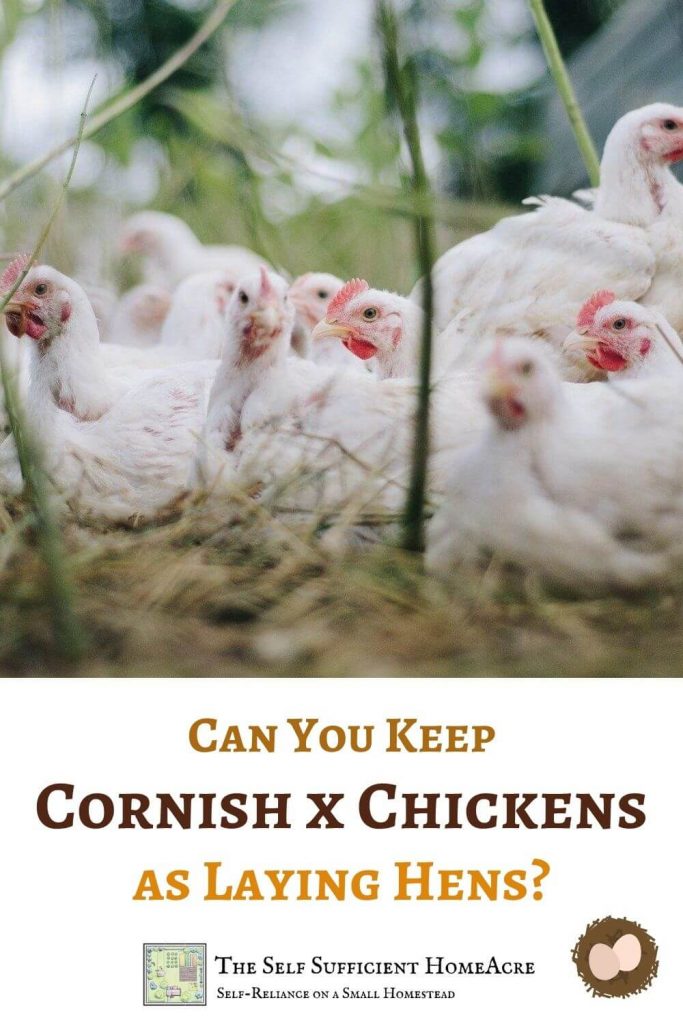
Credit: www.theselfsufficienthomeacre.com
Eggs From Cornish Hens: Common Misconceptions
Eggs from Cornish Hens: Common Misconceptions surround these petite poultry. People often wonder if Cornish hens, known for their meat, lay eggs like other chickens. Let’s crack open the truth and scramble the myths you might have heard.
Frequency Of Laying
- Cornish hens are chickens; they lay eggs.
- They do not lay as many as other breeds.
- Laying can vary greatly, from weekly to bi-weekly.
Egg-laying in Cornish hens is infrequent. It contrasts with egg-laying champion breeds. Detailing their frequency reveals a modest count. Understanding this helps manage expectations for potential backyard poultry enthusiasts.
Edibility And Taste Differences
Many assume unique qualities in Cornish hen eggs.
- Eggs from Cornish hens are perfectly edible.
- Taste is similar to regular chicken eggs.
- Size might be slightly smaller, affecting the recipe quantities.
The misconception about edibility and taste stem from their specialty meat status. In truth, the eggs are as delicious and nutritious as those from other chickens. Culinary explorers can expect familiar flavors from these eggs.
From Farm To Table
The journey from farm to table is a fascinating one, especially when discussing the intriguing Cornish hens. Often admired for their succulent meat, many overlook a basic question: Do Cornish hens lay eggs? Just like their larger poultry counterparts, these petite birds are indeed egg-layers.
Collecting And Preparing Eggs
Cornish hens contribute to the egg basket, although on a smaller scale. Farmhands collect these precious eggs with care. Gentle handling is crucial to prevent damage. Once gathered, the eggs undergo a detailed process that ensures consumers receive the best quality. Cleaning, grading, and packaging are key steps before these eggs begin their journey to tables across the country.
- Inspection to spot any imperfections
- Cleansing under regulated temperatures
- Sorting by size and quality
- Placement in protective cartons
Cornish Hen Eggs In The Culinary World
In culinary circles, size certainly does not dictate quality. Cornish hen eggs may be smaller, but they pack a flavorful punch. Experts in the kitchen seek out these eggs for their richness and versatility, finding them ideal for special dishes. Their unique size allows chefs to present extraordinary dishes that stand out in both taste and presentation.
| Use | Description |
|---|---|
| Baking | Perfect for pastry recipes, adding a rich texture |
| Gourmet Appetizers | Offering a distinctive twist to traditional starters |
| Breakfast Delights | Enhancing classic egg dishes with a unique touch |
Conclusion
To sum up, Cornish hens do indeed lay eggs, though less frequently than regular chickens. This knowledge can enhance your understanding of poultry and impact your farming or culinary choices. Embrace the uniqueness of Cornish hens and consider their egg-laying abilities as a natural wonder worth cherishing.
